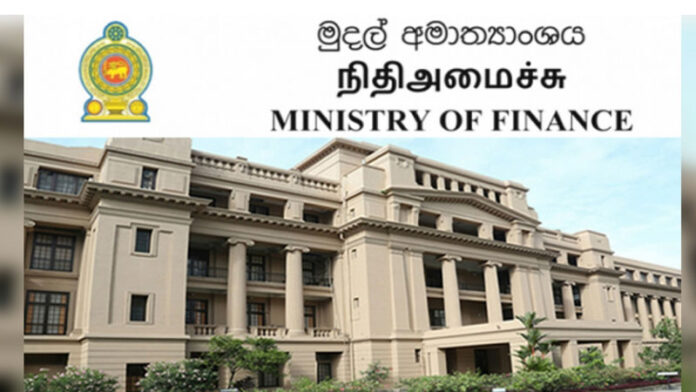Government revenue in the first half of this year has crossed the Rs. 900 billion mark to Rs. 918.5 billion, up from Rs. 714.5 billion in the corresponding period of last year according to the Central Bank.
As at end May 2022 revenue was Rs. 812 billion and Rs. 631 billion in April.Total expenditure and net lending in the first half rose to Rs. 1.82 trillion compared to Rs. 1.5 trillion from a year ago. In May 2022 it stood at Rs. 1.5 trillion and Rs. 1.15 trillion by April.
The Overall budget deficit increased to Rs. 902.7 billion compared to Rs. 780.2 billion recorded in the corresponding period of 2021.
As such, the Government’s fiscal strategy is a balance between stimulating growth, in the course of achieving the target as established in the Fiscal Management (Responsibility) Act, No. 3 of 2003, the Finance Ministry announced .
It is also structured to support private sector led economic growth through both a robust public investment strategy complemented by a tax policy that hinges on low rate, simplicity and consistency.
In this context, the Government’s tax policy is expected to remain within the broad parameters in keeping with its decision to maintain consistency while providing a stable environment for businesses
In particular to plan their activities, specially at a time of a pandemic that has created significant uncertainties.
However, focus is also on to aggressively improve the tax administration making use of technological advancements including Artificial Intelligence (AI) and big data analytics, while continuously introducing mechanisms to make tax payments more taxpayer friendly.
Systems will also be geared to minimize tax evasion and thereby broadening the tax base including the introduction of online payment modalities and e-signatures. As a measure of further simplification of the tax structure, a composite single tax will come into effect from early 2022 Finance Ministry disclosed. .
Measures will also be taken to enhance non tax revenue through including the introduction of auctioning of licenses, increased dividends and levies, with the improved performance of the State Owned Enterprises (SOEs).
Expenditure management is strongly advocated requiring every spending agency to prioritize their activities after having followed a stringent process, especially in managing recurrent expenditures while assuring the efficiency and quality of such spending and an improved service delivery while ensuring that the vulnerable in society are protected through a strong social safety network.
The Government is also keen to move toward a targeted delivery of subsidies. Public investment will focus on priority areas such as water, irrigation, roads, health and education, rural village development, food security, housing, infrastructure, the Finance Ministry said.
